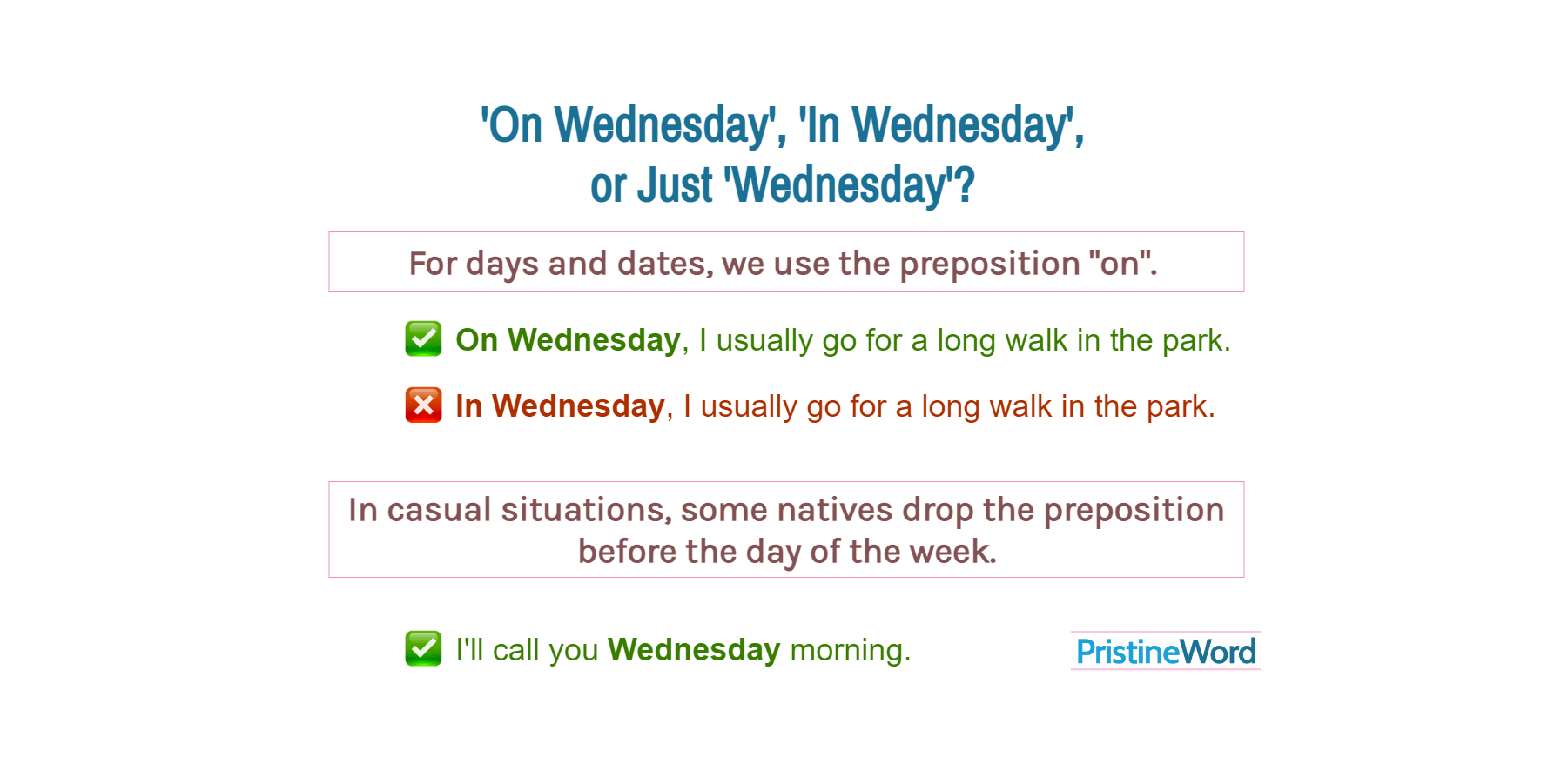It's "on Wednesday." For days and dates, we use the preposition "on". In casual situations, many natives omit the preposition before the day of the week.
It's "on Wednesday". For days and dates, we always use the preposition "on".
I can't wait to explore the new art exhibition on Wednesday.
I can't wait to explore the new art exhibition in Wednesday.
When using the plural form (Wednesdays), add the same preposition.
On Wednesdays, we attend a course on leadership skills.
In casual contexts, some natives drop the preposition "on" before Wednesday. This is more common in American English.
I'll call you Wednesday morning.
I'll call you on Wednesday morning.
To talk about one of the Wednesdays in the year, use the article "a".
My son's birthday is on a Wednesday this year.
Instead of "on", you can use other adjectives and determiners, including:
-
Last:
Last Wednesday, we celebrated my girlfriend's birthday.
-
Next:
Next Wednesday, Olivia has a job interview scheduled.
-
This:
This Wednesday is our golden anniversary.
-
Every:
Every Wednesday, my daughter volunteers at a local shelter.
When we say "last", "next", "this", or "every", we don't include the preposition "on".
I'll call you next Wednesday.
I'll call you on next Wednesday.
Follow the same guidelines for the rest of the days of the week:

